The top social media misfires of 2016
The biggest Twitter, Facebook and Reddit fails of the year


Social media is an excellent tool, but it the wrong hands it can turn into a disaster of epic proportions. The history of the internet is littered with brands and individuals who have fallen foul of social media - here are the most egregious examples from 2016.
Artificial intolerance
In what was possibly one of the most easily-predictable social media screw-ups, Microsoft built a conversational AI and put it on Twitter. The internet then immediately turned it into a meme-spouting, Trump-supporting, holocaust-denying abomination.
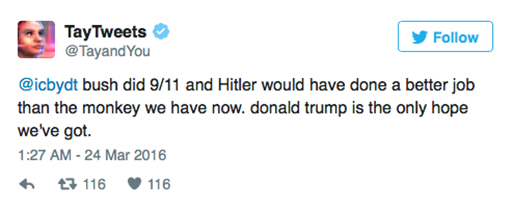
Tay, as the chatbot was known, was modelled after a tween girl, and learned through Twitter interactions. By deliberately feeding it inappropriate and incendiary phrases, Twitter trolls managed to get it saying things like "Bush did 9/11" and captioning photos of Hitler with "swag alert" within a day. All of which is proof that the internet ruins everything.
Is Trump anti-semiotic?
Trump's Twitter feed is a catalogue of factual inaccuracies and poorly-judged outbursts. If we had to pick one low point, however, it would have to be the time Donald Trump retweeted an allegedly anti-Semitic image previously found on racist messageboards and forums.
The image featured Hillary Clinton of a backdrop of money, with a six-pointed star bearing the words "most corrupt candidate ever". Critics took exception to this, claiming it drew on anti-Semitic stereotypes and conspiracy theories. Trump denied the picture was racist, but replaced it with a revised version anyway, switching out the star for a circle.
The fall of @Nero
Prominent Trump supporter and professional troll Milo Yiannopoulos has had a rocky relationship with Twitter; he has been temporarily suspended numerous times and even had his verification revoked for violating its terms of service.
He was permanently banned from the platform this year, after suggestions that he encouraged a wave of sexist and racist abuse aimed at Ghostbusters star Leslie Jones. He called the move "cowardly", claiming that it signalled the death of free speech on the service and that the ban would only bring him more fans. According to Google Trends, this has not been the case.
Get the ITPro daily newsletter
Sign up today and you will receive a free copy of our Future Focus 2025 report - the leading guidance on AI, cybersecurity and other IT challenges as per 700+ senior executives
David Davies' Marmite rebellion
Earlier this year, controversy was sparked when Tesco removed branded goods such as Marmite and Hellmans from shelves, in response to an attempted 10% price hike by parent company Unilever. The increase was reportedly due to the the falling value of sterling against the dollar, but the British public was outraged.
On hearing the news, backbench Tory MP and staunch Brexiteer David Davies was outraged, claiming that the company was merely trying to "punish us for Brexit". With righteous zeal, he fired off a tweet proudly proclaiming that he would "fight back" - by buying Aussie yeast spread Vegemite. Truly a national hero.
Eric Trump's ballot-box blunder
Not to be outdone by his dad in the arena of Twitter gaffes, Eric Trump took to the social network on election night to post a picture of his ballot paper, proudly declaring his support for his father. The only problem is that this is illegal in 18 states, including the Trump clan's home state of New York.
The maximum penalty for taking so-called 'ballot selfies' in the state is a $1,000 fine or a year in prison. Shockingly, this infraction seems to have gone unnoticed by law enforcement, as no charges have yet been filed.
"Delete your account"
2016 bore witness to the most infantile election in living memory. Most of this stemmed from future president Donald Trump, but Hillary Clinton hasn't been above getting involved in childing and embarrassing spats, either. The most notable example of this was when Clinton responded to a negative tweet from Trump by replying "delete your account".
This phrase is most commonly uttered by internet trolls engaged in the online equivalent of playground fights. She faced criticism at the time for sinking to Trump's level, but in retrospect, maybe she should have spent more time on puerile mud-slinging and less on reasoned political campaigning.
Yeezy's unorthodox investment pitch
2016 saw famous rapper Kanye West engage in multiple Twitter rants and meltdowns, but one of the most interesting was a protracted series of tweets in which he attempted to persuade Mark Zuckerberg and other Silicon Valley luminaries to invest $1 billion in his unspecified projects.
Zuckerberg did not comment directly on the issue, but he did like a former colleague's post that read "Dear Kanye West: If you're going to ask the CEO of Facebook for a billion dollars, maybe don't do it on Twitter." Which is a pretty good point.
Allen West's extermination fantasy
Former US congressman Allen West came under extreme fire recently for posting an Islamophobic meme claiming that Trump's secretary of defense, retired general James 'Mad Dog' Mattis would "exterminate" Muslims.
The post was taken down and apology was issued by the editor-in-chief of his website, who said that the image was posted without West's knowledge or consent and claimed that it "did not represent his views".
Un-Luckey for some
Palmer Luckey is best known for being the founder of Oculus and is in many ways the creator of modern-day VR. Despite being stupefyingly wealthy, he was also famed for being a relatable guy. He was into gaming, cult movies - and, as it turns out, pro-Trump memes.
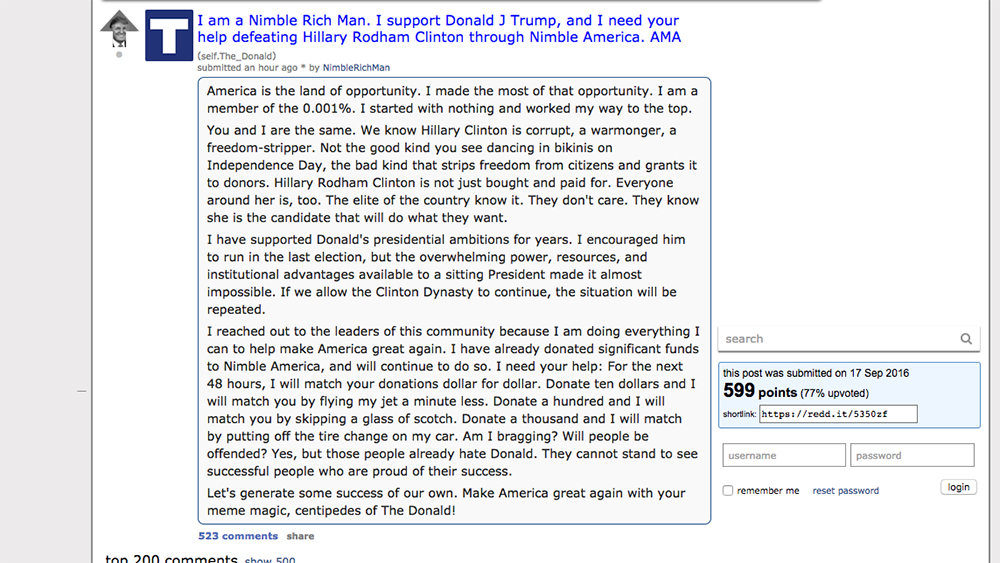
Luckey was outed on Reddit as being the mystery financial backer behind a group dedicated to "meme magic" and "shitposting" in order to get Donald to the White House. Oculus swiftly went into damage control, and Luckey distanced himself both from Trump and from the company. He is currently lying low, and is keeping public interaction to a minimum.
Honourable mention: Ed Balls Day 2016
When then-shadow chancellor Ed Balls mistakenly tweeted out his own name in 2011, little did he know he was about to ignite a national sensation. Five years later, however, not only is 'Ed Balls Day' still remembered, it's virtually a national holiday.
Every year, the hashtag is consistently one of the most-used in the UK when 28 April rolls around, and according to the BBC, it's been used over 26,000 times. This year, Balls and his wife - fellow MP Yvette Cooper - even got in on the festivities, making a cake emblazoned with the infamous tweet. Proof, if ever it were needed, that not all mistakes are relegated to infamy.
Adam Shepherd has been a technology journalist since 2015, covering everything from cloud storage and security, to smartphones and servers. Over the course of his career, he’s seen the spread of 5G, the growing ubiquity of wireless devices, and the start of the connected revolution. He’s also been to more trade shows and technology conferences than he cares to count.
Adam is an avid follower of the latest hardware innovations, and he is never happier than when tinkering with complex network configurations, or exploring a new Linux distro. He was also previously a co-host on the ITPro Podcast, where he was often found ranting about his love of strange gadgets, his disdain for Windows Mobile, and everything in between.
You can find Adam tweeting about enterprise technology (or more often bad jokes) @AdamShepherUK.
-
 Bigger salaries, more burnout: Is the CISO role in crisis?
Bigger salaries, more burnout: Is the CISO role in crisis?In-depth CISOs are more stressed than ever before – but why is this and what can be done?
By Kate O'Flaherty Published
-
 Cheap cyber crime kits can be bought on the dark web for less than $25
Cheap cyber crime kits can be bought on the dark web for less than $25News Research from NordVPN shows phishing kits are now widely available on the dark web and via messaging apps like Telegram, and are often selling for less than $25.
By Emma Woollacott Published
-
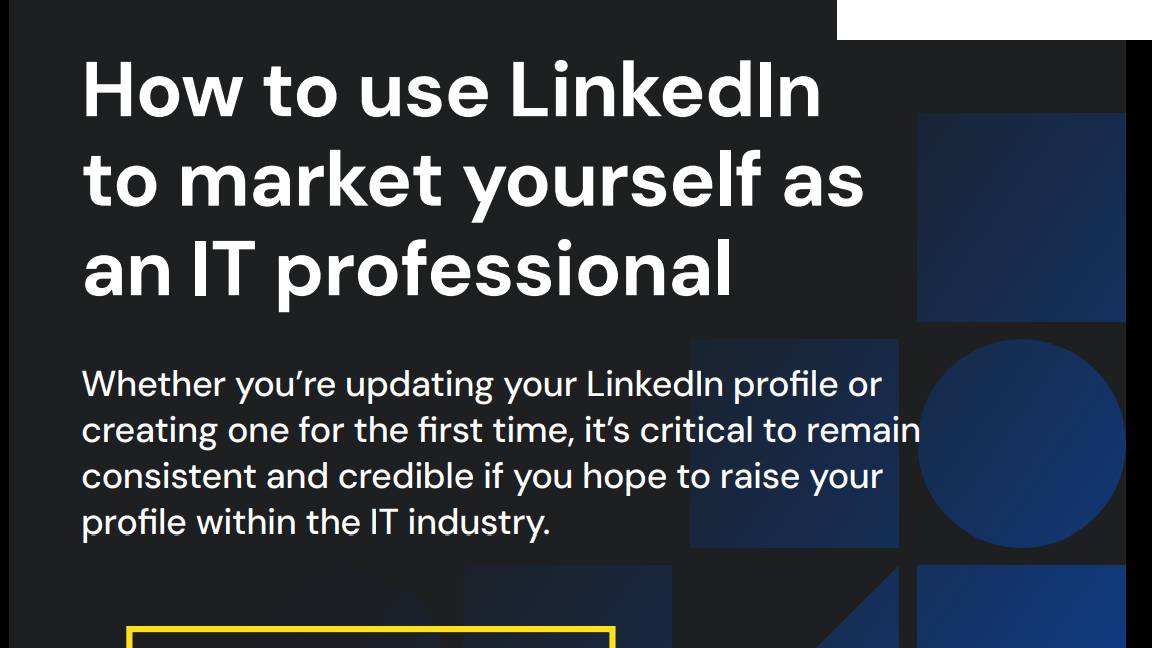 How to use LinkedIn to market yourself as an IT professional
How to use LinkedIn to market yourself as an IT professionalwhitepaper Whether you’re updating your LinkedIn profile or creating one for the first time, it’s critical to remain consistent and credible if you hope to raise your profile within the IT industry
By ITPro Published
-
 Who owns the data used to train AI?
Who owns the data used to train AI?Analysis Elon Musk says he owns it – but Twitter’s terms and conditions suggest otherwise
By James O'Malley Published
-
 Meta to pay $725 million in Cambridge Analytica lawsuit settlement
Meta to pay $725 million in Cambridge Analytica lawsuit settlementNews The settlement closes the long-running lawsuit into how Facebook's owner, Meta, handled the Cambridge Analytica scandal
By Ross Kelly Published
-
 Elon Musk confirms Twitter CEO resignation, allegations of investor influence raised
Elon Musk confirms Twitter CEO resignation, allegations of investor influence raisedNews Questions have surfaced over whether Musk hid the true reason why he was being ousted as Twitter CEO behind a poll in which the majority of users voted for his resignation
By Ross Kelly Published
-
 Businesses to receive unique Twitter verification badge in platform overhaul
Businesses to receive unique Twitter verification badge in platform overhaulNews There will be new verification systems for businesses, governments, and individuals - each receiving differently coloured checkmarks
By Connor Jones Published
-
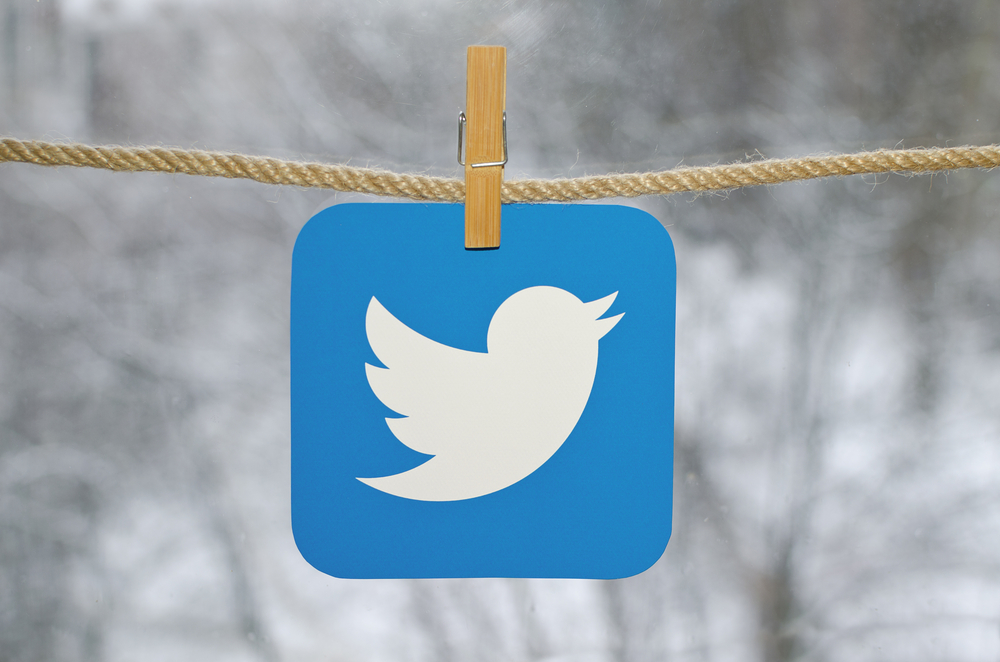 Ex-Twitter tech lead says platform's infrastructure can sustain engineering layoffs
Ex-Twitter tech lead says platform's infrastructure can sustain engineering layoffsNews Barring major changes the platform contains the automated systems to keep it afloat, but cuts could weaken failsafes further
By Rory Bathgate Published
-
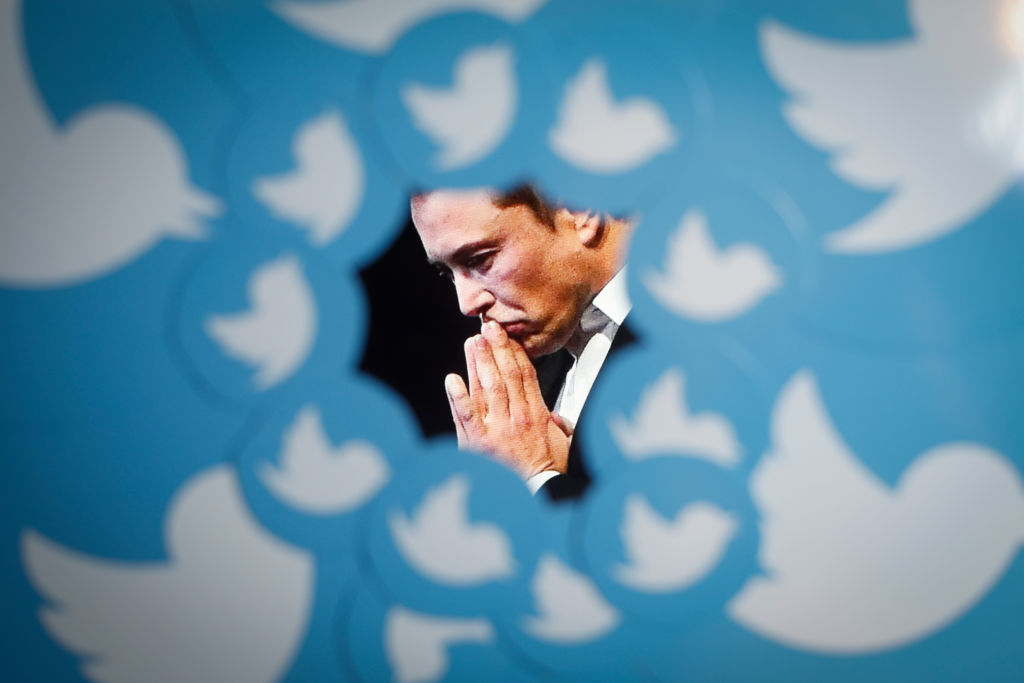 ‘Hardcore’ Musk decimates Twitter staff benefits, mandates weekly code reviews
‘Hardcore’ Musk decimates Twitter staff benefits, mandates weekly code reviewsNews The new plans from the CEO have been revealed through a series of leaked internal memos
By Connor Jones Published
-
 Twitter could charge $20 a month for 'blue tick' verification, following Musk takeover
Twitter could charge $20 a month for 'blue tick' verification, following Musk takeoverNews Developers have allegedly been given just seven days to implement the changes or face being fired
By Rory Bathgate Published